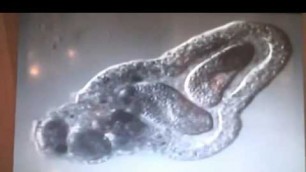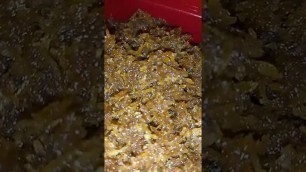

'Science says eating just one meal per day can improve your health. Learn more at https://highintensityhealth.com/OMAD ----- Access the Show Notes & Download the Audio: http://highintensityhealth.com/digestion-gut-microbiome-probiotics-prebiotics-russell-jaffe-md-phd-ccn/ Key Points: 15:15 Antibiotics Lay Waste to our Microbiome. This is well explained in When Antibiotics Fail: Restoring the Ecology of the Body, a book by Mark Lappe’ and in Michael Schmidt’s work. You need to work intensively replenishing every day for 3 to 6 months after antibiotic exposure using multiple healthy organisms, fermented food and active supplements. Dr. Jaffe uses the power of billions of live CFU, colony forming units, in human implantable strains. Live bugs work and dead bugs don’t. 16:43 We Can Make Our Own: We can make our own prebiotic foods with high fiber to feed the good bugs. We can take in enough probiotic organisms to replenish those expended from stress and toxin exposure, and symbiotic foods, nutrients like recycled glutamine, which helps repair the digestive tract. Prebiotics, probiotics and symbiotics form a triad. 17:33 Renaissance of Proactive Primary Prevention: For the past 3 years, throughout the world there have been public health initiatives to get more prebiotic high fiber, probiotic organisms, and symbiotics into our diets. The lining of the intestinal tract is one of the most vulnerable places in the body. It replaces itself about every 3 days. A healthy person’s digestive tract, if laid out flat, would be as large as a tennis court. Most American adults suffer from atrophy of their digestive tract because they have not been nourishing and nurturing it. This means that they only have a few square feet. The good news is that this can nearly always be rehabilitated. 18:57 The Age Myth: It is a lie that once we begin to decline with age that it can be slowed and symptoms can be suppressed, but the decline is irreversible and inescapable. The age myth is about the proportion of unhealthy people at certain stages of life. Dr. Jaffe has tested groups of 90 to 100 year olds and healthy 20 to 30 year olds, drawing their blood, culturing their white cells, culturing muscles and other cells, and the groups are indistinguishable from each other. 20:48 A Detailed Description of Digestion: Digestion begins with your eyes. They tell your gut and your brain, what you will be consuming. As we chew, small bits of food escape through the mucosa to inform the brain and the gut as to what digestive juices will be needed for this meal. The stomach churns and produces acid. People with ulcers have low stomach acid and healthy people have lots of stomach acid. Proton pump inhibitors are prescribed all the time. Often, if you believe they will work, they will work just slightly better than placebos. When you inhibit stomach acid production, you set up a chain of events of maldigestion, often with the sensitization of the immune system. It is essential that we have an amino acid called histadine that donates the proton, the acid that keeps the stomach acidic so that pepsin, the enzyme that loves to be in that acid environment, begins to open the food particles, especially the proteins and the concentrated foods. The acid in the chyme, which is the stuff that comes out of the stomach and is delivered to the small intestine, triggers a bicarbonate and digestive enzyme release from the pancreas. . We meet the bicarbonate and digestive enzymes that pour out of the pancreas to neutralize the stomach acid and begin the next phase. At a small duct, bile comes in to emulsify fats, bringing fat soluble vitamins and nutrients into the body. For the next 20 feet, nutrients are taken up selectively. Then it is on to the large intestine, which should not have digestive remnants. By the time we get to the ileocecal valve that separates the small intestine from the large, the food should be broken down to non-immune reactive building blocks that get assimilated. There should be enough fiber to bind toxins and remove them from the body. These toxins are putrescine, cadaverine, and other polyamines, which can form when digestive transit time is longer than the healthy 12 to 18 hours. 25:17 Digestive Transit Time: Typical Americans have a 72 hour to 144 hour transit time from entrance to exit. If you are, you will want to increase the fiber in your diet, you eat foods that you can digest, assimilate and eliminate without immune burden, if you have some sense of portion control, so we do not overwhelm the body. Only about 1 in 20 Americans, or about 5% of our population, has a healthy transit time of 12 to 18 hours and a healthy digestion. Maldigestion, dysbiosis, inflammatory atrophy and enteropathy of the digestive mechanisms is at epidemic proportions and has been for many decades. These digestive disorders are most often the cause of chronic degenerative autoimmune and inflammatory conditions.'
Tags: digestion , microbiome , gut bacteria , probiotics , Mike Mutzel , Russell Jaffe , gut microbes
See also:

















comments